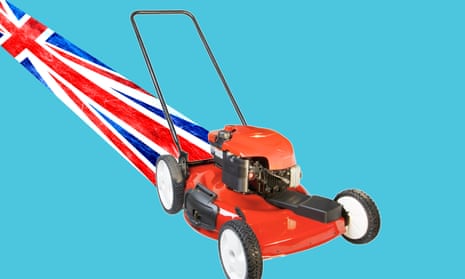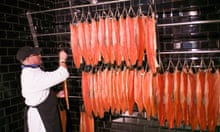Launching the Vote Leave battlebus with an impromptu speech in Cornwall, Boris Johnson has listed several factors he said mean the Brexit camp had “right on its side” and 24 June – the day after Britain’s EU referendum – would prove to be “Independence Day for Britain”.
Brandishing a Cornish pasty (rather ironically, one of more than 60 British food and drink products that have protected geographical status under EU law, meaning they cannot be ripped off by imitations made elsewhere), Johnson said it was “absolutely crazy that the EU is telling us how powerful our vacuum cleaners have got to be, what shape our bananas have got to be, and all that kind of thing”.
He said it was “costing UK businesses about £600m a week in unnecessary regulation” and that he was “delirious” with Vote Leave’s claim, repeated on the side of the battlebus, that Britain “sends the EU £350m a week”.
But how fair are his claims?
There was outcry in some parts of the press in 2014 about what was described as an EU ban on certain kinds of about 30 different electrical appliances – including vacuum cleaners, kettles, toasters and lawnmowers.
The ban is on appliances that use too much energy: for vacuum cleaners, for example, the maximum input power has been 1,600 Watts since 2014 and will be 900W from September 2017.
It is aimed at increasing energy efficiency – producing more effective vacuum cleaners that use less electricity. Similar rules introduced two decades ago for white goods mean fridges and freezers, for example, now use about one-third less electricity than they did then.
Vacuum cleaner makers backed the new rules when the industry was consulted before their introduction. And far from Britain “being told” how powerful vacuum cleaners could be, the UK government actively supported the measures and, like every member state, could have blocked them if it wanted to.
A Brussels ban on bendy bananas is one of the EU’s most persistent myths.
Bananas have always been classified by quality and size for international trade. Because the standards, set by individual governments and the industry, were confusing, the European Commission was asked to draw up new rules.
Commission regulation 2257/94 decreed that bananas in general should be “free from malformation or abnormal curvature”. Those sold as “extra class” must be perfect, “class 1” can have “slight defects of shape” and “class 2” can have full-scale “defects of shape”.
Nothing is banned under the regulation, which sets grading rules requested by industry to make sure importers – including UK wholesalers and supermarkets – know exactly what they will be getting when they order a box of bananas.
The claim that EU regulations cost British businesses £600m a week comes from the thinktank Open Europe, which calculated that the 100 most expensive EU rules cost UK companies and the public sector £33.3bn a year.
But as the InFacts website points out, the same study also found that quantifiable benefits from these rules were worth about £58.6bn a year, or £1.1bn a week: a net gain of about £487m a week.
Many other, less easily quantifiable benefits of EU membership – such as the boost to trade from the single market – and benefits for individual citizens were not factored into the equation.
Moreover, many of these “unnecessary regulations” are either rules – on banking security, for example – that the UK would want to keep after a British exit from the EU, or derive from international agreements Britain would still have to abide by.
Overall, Open Europe found that once the benefits of these rules were deducted, the overall saving that might be achieved by “politically feasible” cuts to red tape after leaving the EU might be about £8.5bn annually – against which would have to be offset all the unquantifiable costs of a Brexit.
The same kind of problem occurs with Vote Leave’s claim that “Britain sends £350m a week to the EU”. First, the figure does not take account of Britain’s rebate, worth nearly £100m a week (which also means some of Britain’s “membership fee” never actually leaves the UK). Second, roughly half of what Britain does pay comes straight back in EU spending in the UK.
So arguably a more accurate reflection of the cost to Britain of EU membership might be £8.5bn last year, or about £160m (as opposed to £350m) a week. And once more, that adjusted figure does not take into account any of the economic and financial benefits to Britain of being in the single market.
Sir Andrew Dilnot, chair of the UK Statistics Authority, has written to Vote Leave saying the £350m figure “appears to be a gross figure, which does not take into account the rebate, or other flows from the EU to the UK public sector [or flows to non-public sector bodies]”.
As such, Dilnot added: “Without further explanation I consider these statements to be potentially misleading and it is disappointing that this figure has been used without such explanation.”










Comments (…)
Sign in or create your Guardian account to join the discussion